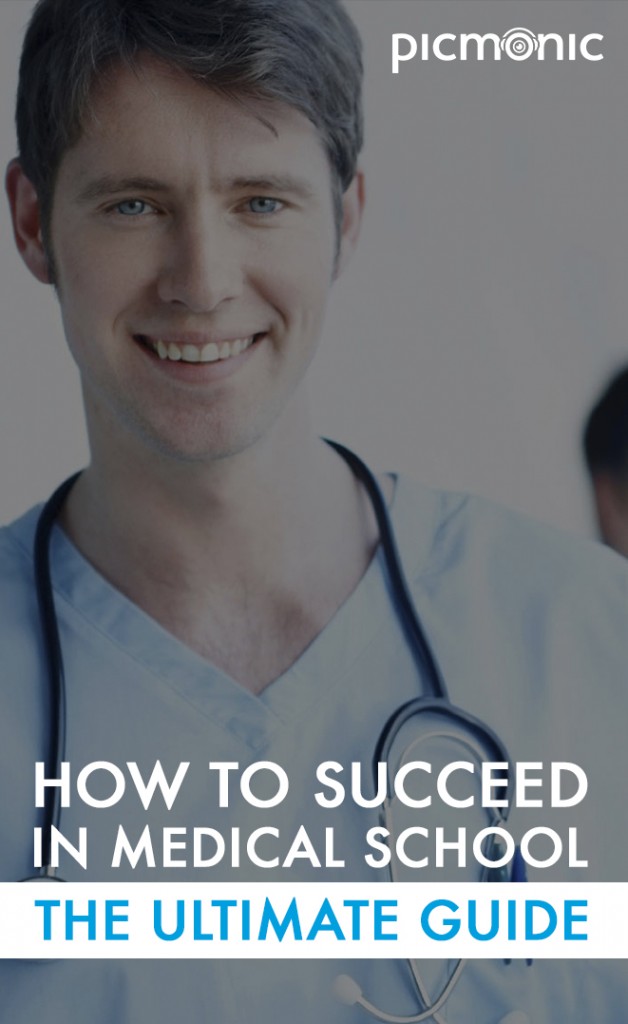 No matter where you are in your medical career, you’re very aware of the possibility of failing medical school. We compiled this article based on the observations of a career counselor for struggling and failing medical students, and what we found may surprise you.
No matter where you are in your medical career, you’re very aware of the possibility of failing medical school. We compiled this article based on the observations of a career counselor for struggling and failing medical students, and what we found may surprise you.
Read on to find out how to succeed in medical school and become a top physician.
Choose Wisely
 First of all, be sure you want to be in medical school. Isn’t it a little late for that, you ask? No, it’s not.
First of all, be sure you want to be in medical school. Isn’t it a little late for that, you ask? No, it’s not.
Some students find that their chosen career path doesn’t parallel their developing interests, abilities, sensitivities or their maturing understanding of the world-of-work, according to Dr. Caven S. Mcloughlin.
The real failure is ignoring this until you’ve graduated with tens of thousands of dollars in debt and are working in a field you don’t love. Instead, whether you are a first year medical student, a second year medical student or you’ve already passed the USMLE exam, really analyze whether the medical field is right for you. Don’t let outside pressures choose for you either.
Likewise, if you’re not yet in medical school and are considering it, go for it! More and more nontraditional students are transitioning out of current careers and attending medical school. In recent years, about 9% of medical school applicants were over age 29, according to CNN.
Focus on the End Result
 Dr. Mcloughlin made another interesting observation during his years of interviewing, tutoring and counseling students in severe academic difficulty at a Midwestern medical school. He noted that students who struggled academically, while appearing to be as committed as successful students, did not think farther ahead than graduation.
Dr. Mcloughlin made another interesting observation during his years of interviewing, tutoring and counseling students in severe academic difficulty at a Midwestern medical school. He noted that students who struggled academically, while appearing to be as committed as successful students, did not think farther ahead than graduation.
That is, the less successful medical students thought of themselves as medical students, rather than visualizing themselves as medical providers.
Rather than just “getting through” the next exam or placing all your emphasis on your coursework, consider what kind of doctor you want to be. This mentality will not only pull you through the emotionally draining all-night USMLE study sessions, it will also help you maintain focus, stay passionate and pay attention to the parts of your education that will make you the best medical provider.
Don’t Just Count on Your Brains
 Both the CNN article and Dr. Mcloughlin’s analysis denoted the importance of emotional intelligence, as well as the danger of relying too much on IQ.
Both the CNN article and Dr. Mcloughlin’s analysis denoted the importance of emotional intelligence, as well as the danger of relying too much on IQ.
One reason Dr. Suzanne Miller, a medical school admissions consultant, suggests for nontraditional students’ success is because “emotional intelligence is just as or more important than IQ.” Nontraditional students are more likely to have real-life experiences like dealing with death or taking care of sick people and might be able to better relate with patients. They may also have already learned a better work-life balance.
This doesn’t mean that if you are fresh out of undergrad, you’re destined to fail. Instead, you can do things to increase your emotional IQ such as taking personal development courses, volunteering your time where you can interact with others, and following the next two tips very carefully.
Organize, Organize, Organize!
 Were you an excellent test taker in your undergrad career? Are you highly adept at retaining massive amounts of information? Neither of those two skills alone will guarantee your success in medical school.
Were you an excellent test taker in your undergrad career? Are you highly adept at retaining massive amounts of information? Neither of those two skills alone will guarantee your success in medical school.
You must also form important habits such as organization.
Finding the best way to organize your medical school and USMLE study materials is crucial. That’s why Picmonic, a study tool proven to help medical students retain more information for longer, allows you to organize your study cards by topic, sort by corresponding First Aid number, search for an exact card by keyword, and create a custom playlist of topics you want to focus on.
Don’t Treat Med School Like Undergrad
 You may have been able to study last-minute for a test in undergrad and crush it, but a this ain’t my first rodeo attitude will not help you here.
You may have been able to study last-minute for a test in undergrad and crush it, but a this ain’t my first rodeo attitude will not help you here.
This is your first rodeo!
Meaning, nothing you did in undergrad can prepare you for the intensity and magnitude of materials in medical school. You must take it seriously and study regularly from the onset.
Know that you may have to re-learn your study strategies. According to Dr. Mcloughlin, many students who fail medical school were not academically challenged prior to medical school. Consequently, they approach their medical school studies the same way they approached previous studies. Don’t be surprised if this does not work. Learn about different study methods from professors, your fellow students and by researching what does and doesn’t work.
Ask for Help
 Most medical students have enjoyed highly successful academic careers. The first sign of failure can be emotionally shocking and even devastating to them. Combine this with the rigors of ongoing coursework, pressures from family, and the financial risk of medical school, and it’s not hard to see why one failed exam can be the tipping point for a student.
Most medical students have enjoyed highly successful academic careers. The first sign of failure can be emotionally shocking and even devastating to them. Combine this with the rigors of ongoing coursework, pressures from family, and the financial risk of medical school, and it’s not hard to see why one failed exam can be the tipping point for a student.
Unfortunately, many also fail to ask for help. Mr. Mcloughlin says failing students generally have a reluctance to approach academic personnel for advisement. Without getting help right away, the feeling of abandonment (brought on by their own unwillingness to ask for help) can exacerbate the problem and lead them further into failure.
If you find yourself struggling, speak to a professor or academic adviser immediately. You may be able to pull yourself out on your own, but why risk it?
To find out if Picmonic’s evidence based study tool is right for you, try it for free!
Download our mobile app and take Picmonic on the go!















